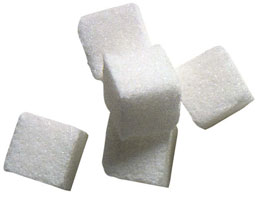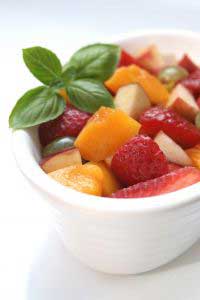I have found in my private nutrition practice that people misunderstand sugar. Dietitians are most concerned with helping you limit “added sugars.” This is sugar that food manufacturers add to products to make them sweeter. The problem is that added sugars are not listed separate from naturally occurring sugars on the food label so you have to play detective and find the “sugar sources” on the ingredients list.
Watch my video on sugar in foods to help set the record straight on what you should look for.
Here are common sugars you may see on the ingredients list:
- Corn sweetener
- Corn syrup, or corn syrup solids
- Dehydrated cane juice
- Dextrin
- Dextrose
- Fructose
- Fruit juice concentrate
- Glucose
- High-fructose corn syrup
- Honey
- Invert sugar
- Lactose
- Maltodextrin
- Malt syrup
- Maltose
- Maple syrup
- Molasses
- Raw sugar
- Rice Syrup
- Saccharose
- Sorghum or sorghum syrup
- Sucrose
- Syrup
- Treacle
- Turbinado Sugar
- Xylose
There is no recommended minimum amount of added sugars you should have each day. The Dietary Guidelines for Americans lumps added sugar, solid (saturated) fat, and alcohol into a small “discretionary calories” budget, which is roughly 250 calories worth a day. That’s not even enough to cover one of the standard 20-ounce soda or sweetened iced tea beverages that are sold today.
You can track your added sugars on MyPyramid and see how quickly your usual food choices rack up the added sugar. Don’t just swap out foods with added sugar to their artificially sweetened cousins without asking yourself, “am I choosing these snack foods in place of fresh fruits, vegetables, skim milk, or unflavored yogurt?”
 Tips for keeping sugars balanced in your eating plan:
Tips for keeping sugars balanced in your eating plan:
- Don’t worry about sugars in fresh fruits, vegetables, and low-fat / fat-free unflavored milk. These are naturally occurring.
- Read labels for dry cereals, flavored instant oatmeal, and ice cream products to try to find ones with as little added sugars as possible. Instead, add your own fresh fruit!
- Avoid sweetened beverages (soda, tea, juices, flavored water, sports drinks, flavored coffee drinks, and mixed alcoholic drinks) as much as possible.
Be smart about sugars. If you like a sweet salad dressing to dip your veggies in or a little maple syrup on your oatmeal, don’t sweat it. You’re adding a touch of sweetness to healthy foods. That’s different than hitting the vending machine for a candy bar and soda at 3p.m.
